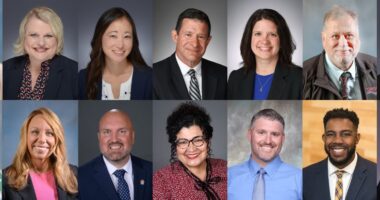Support Pipeline for Black and Brown School Leaders on Full Display at UNITED
Educational conferences help principals find networks they can tap year-round.
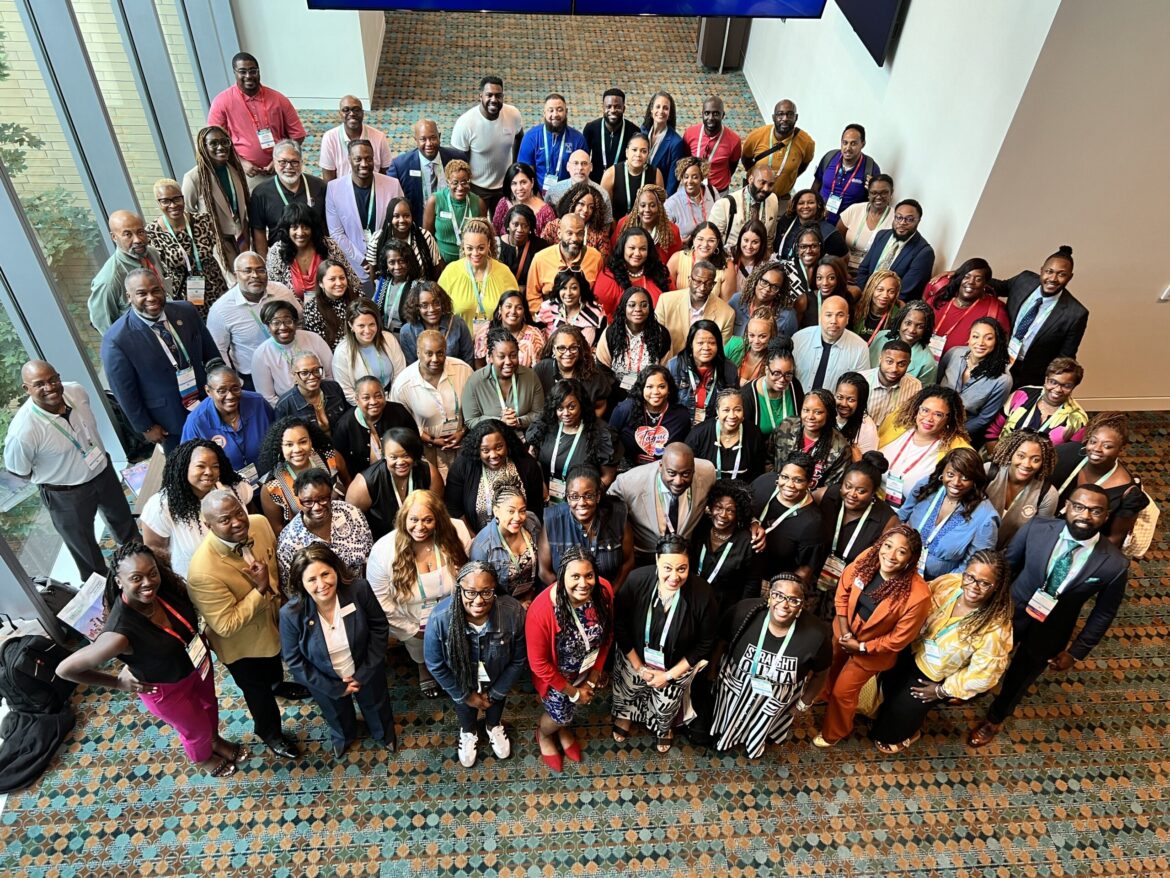
This time last week, I was in Nashville surrounded by more than 4,000 school leaders at UNITED: The National Conference on School Leadership. I am always energized by annual conferences that gather practitioners; it feels like a family reunion and professional pep rally mixed into one engaging event.
One of the most inspiring takeaways for me was witnessing and supporting the many movements to provide customized experiences for black and brown school leaders, who are underrepresented in all areas of school leadership. Research shows that racial and ethnic gaps between principals and the student population have widened in recent decades, and effective principals are not equitably distributed across schools.
The UNITED conference featured such sessions designed to support principals from underrepresented groups such as “Voices on Leadership from a Black Male Perspective” and “What It Means to Be Seen: Recognizing, Celebrating, and Discovering Diverse Perspectives and Identities,” as well as meetups for communities for assistant and early career principals, middle-level leaders, female school leaders, rural school leaders, and those who advocate for students who identify as LGBTQ+. These session and meetups are a part of a drive to uncover and leverage the benefit of affinity spaces, and their existence demonstrates a tangible benefit of national educational leadership conferences is nurturing your own network to fill a void in professional growth.
Here’s a snapshot of some of the affinity spaces featured at the UNITED conference:
NAESP Principals of Color Network
For the second year in a row, 100 BIPOC (Black, Indigenous, People of Color) school leaders gathered for the NAESP Principals of Color Network Workshop at NAESP’s annual conference.
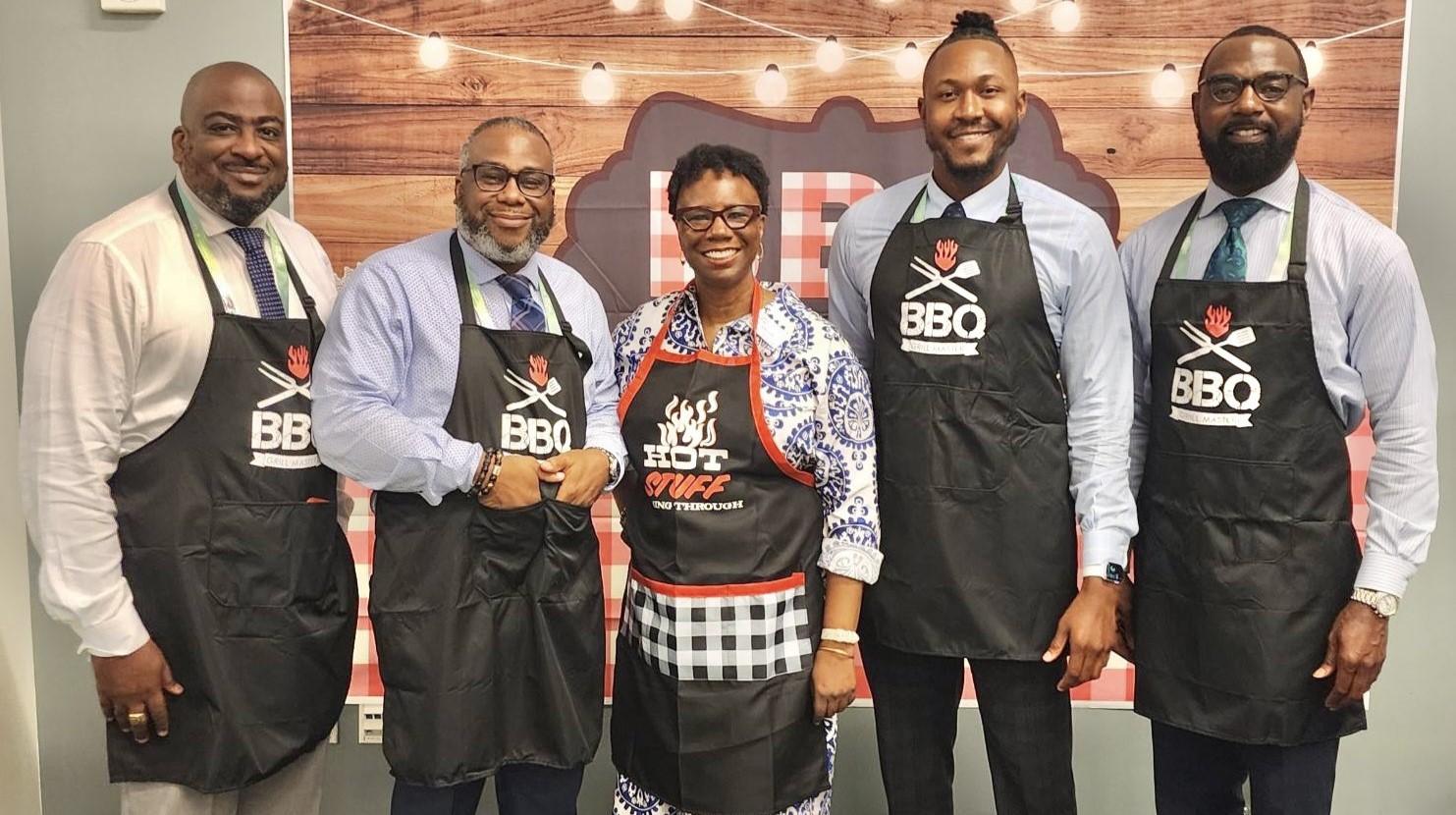
Facilitated by BOLD Leadership Network, the workshop was organized around the theme “You’re Invited to the Cookout.” With goals for fostering open and courageous conversations for authentic dialogue and connection, building unity through shared experiences and a sense of community, and identifying shared challenges and collaborating on solutions, the workshop turned common challenges into opportunities and solutions.
The workshop took place after a year of virtual meetings for the NAESP Principals of Color Network that were organized around addressing problems of practice like leading equity professional development with staff, addressing discipline disparities, and recognizing and addressing trauma in adults.
The workshop attendees identified the following problems of practice that they want to tackle this upcoming school year: leading as a minority in a majority-white school system, implementing “courageous conversations” around equity data, strategies for advocating for schools and communities, and finding white allies to support equity work.
Learn more about the NAESP Principals of Color Network.
NAESP Centers for Diversity Leadership Records Podcast
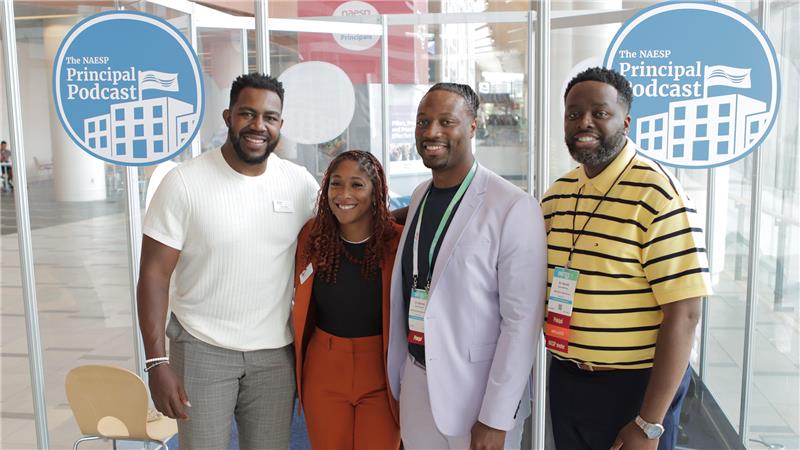
NAESP’s Center for Diversity Leadership focuses on promoting best practices and sharing resources related to cultural responsiveness and inclusion leading to a deeper understanding among all leaders on how to address the needs of each student. At the UNITED conference, center fellows Ryan Daniel and Xavier Reed sat down with Harold McCray, founding principal of McArthur High School in Washington, D.C., and Quennel Cooper, principal of Prairie View Elementary in Eden Prairie, Minnesota, for a discussion on what it means to build community.
Whether it’s connecting with the school partners, fostering a positive culture, or developing strong professional bonds with peers, everyone had their unique insights and perspectives to share. Listen to a recent podcast episode from the NAESP Center for Diversity Leadership.
NAESP Latino+ Network Launches With Meetup
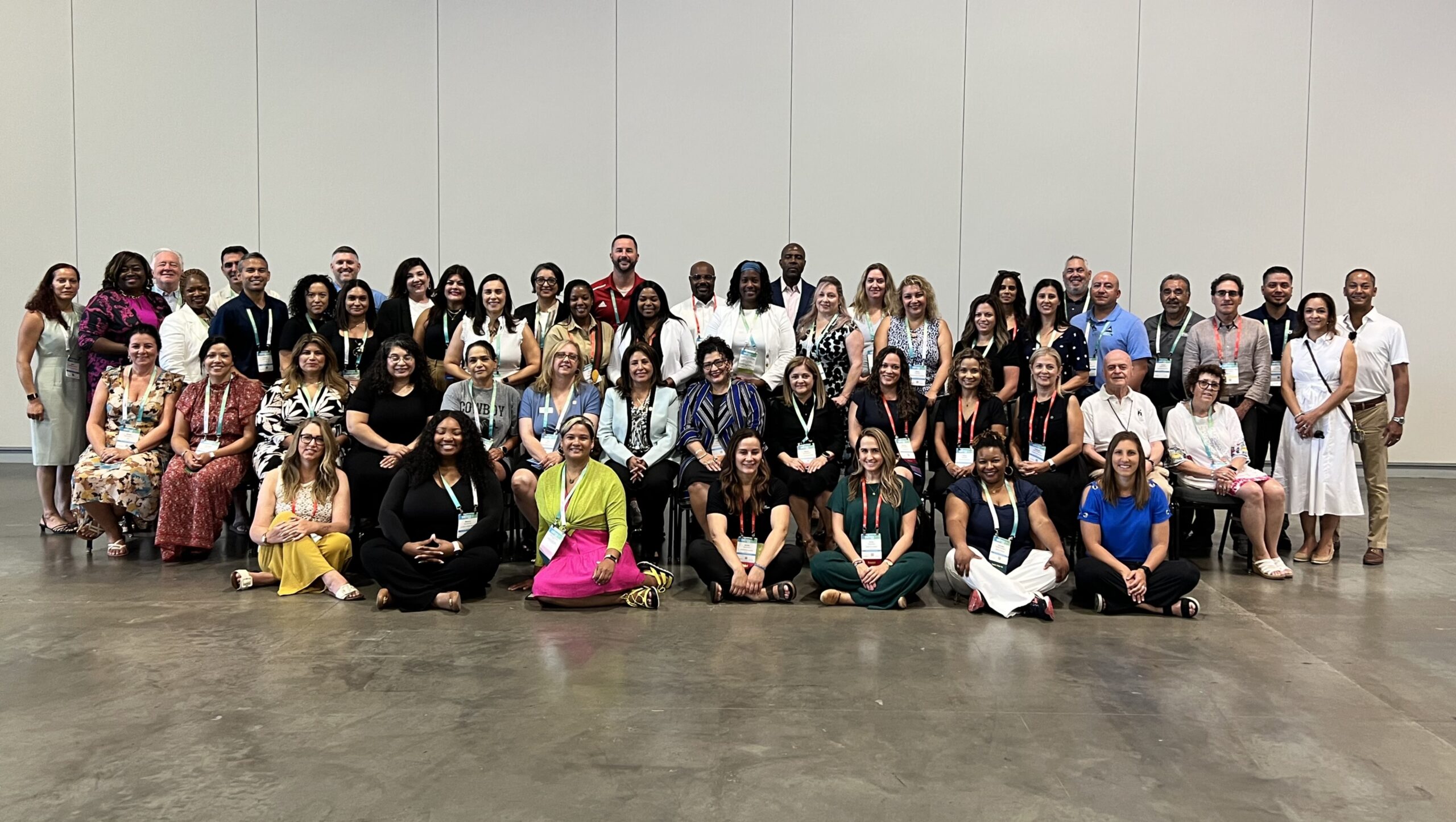
NAESP is collecting a variety of perspectives to help us understand the specific needs of Hispanic and Latino school leaders, as well as those who serve Hispanic and Latino students.
Spearheaded by NAESP President Liza Caraballo-Suarez, an exploratory committee surfaced the following priorities for the group:
- A network for Latino+ school leaders matters because of the need to recruit, hire, and retain more Latino and bilingual teachers so that students feel represented in their school and leaders can support parents and families on a greater scale.
- A network for Latino+ school leaders meets intended needs when there are safe forums to discuss racial bias (both intra-racial and interracial) and the multitude of what it means to identify as Latino.
- Professional support for Latino+ leaders addresses topics such as managing imposter syndrome; understanding the differences between language proficiency, cognitive issues, and language acquisition; and addressing racial and cultural biases.
Members of the Latino+ network explained that we know we’re headed in the right direction when these three things happen:
- We’re preparing the next generation of Latino school leaders;
- Latino students have role models of leaders who look like them; and
- The education field understands and respects cultural diversity.
Sign up to join the NAESP Latino+ Network.
Learner Networks for Black and Brown School Leaders
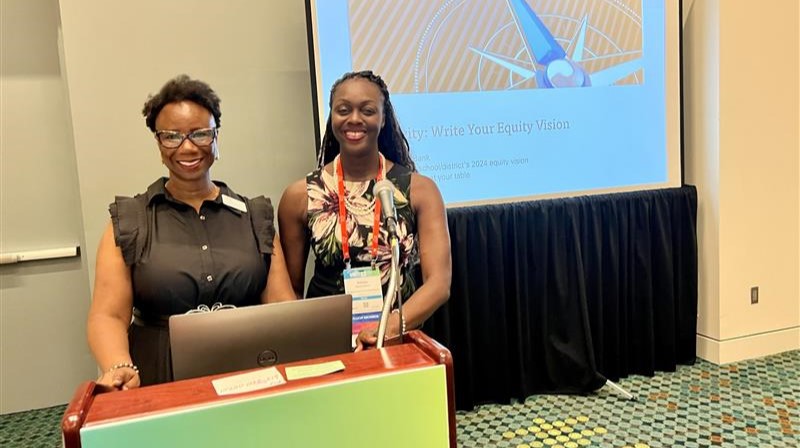
In a full-circle moment that exemplifies the power of learner networks to advance equity, I teamed up with Natalie Nelson of Westbury Union Free School District (New York) to present the session “Empowering Black and Brown School Leaders in Learner Networks”. Nelson is director of Diversity, Equity, Inclusion, Belonging, and Special Programs for her district—but she and I first met when she was an assistant principal and participating in NAESP’s networks. We teamed up to present a concurrent session explaining how initiatives like NAESP’s Principals of Color Network are strengthening the principal pipeline and supporting BIPOC school leaders. During the session, we uncovered barriers and strategies for supporting underrepresented school leaders, promoting equity in educator networks, and leveraging them to benefit all students. We also set out to help attendees gain an understanding of how equity-focused principals can implement the four leadership behaviors outlined in “How Principals Affect Students and Schools,” published by The Wallace Foundation, and how educator networks can facilitate knowledge mobilization among peers. Attendees gained actionable insights on centering equity and supporting the professional growth of school leaders.
This quote from Mark Anthony Gooden, et al., author of “A Culturally Responsive School Leadership (CRSL) Approach to Building Equity-Centered Principals,” informed the session and discussion:
“Principals cannot solve all the societal problems that lead to educational inequities, but they can address key factors in schools that perpetuate inequities. How can systems be designed to produce and support equity-centered school leaders who can meet one of today’s most pressing educational challenges?”
In reviewing the CRSL framework, session attendees expressed that they were most comfortable with the skills and behaviors necessary for having a critical consciousness, ensuring schools are inclusive, and engaging with a range of community members to define the context for educational justice. The majority, however, expressed a need for more guidance in supporting teachers to provide culturally responsive classrooms. And that is exactly what spaces like NAESP’s Principals of Color Network, Latino+ Network, and Center for Diversity Leadership will tackle this fall.
Kaylen Tucker is associate executive director, Communications, at NAESP and editor in chief of Principal magazine.


